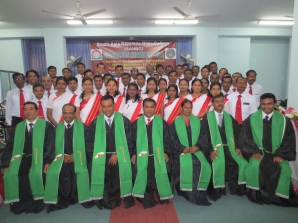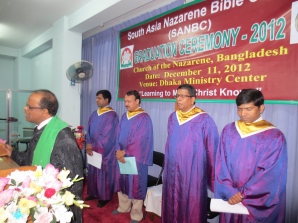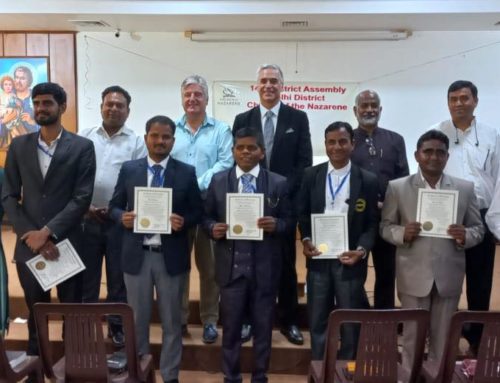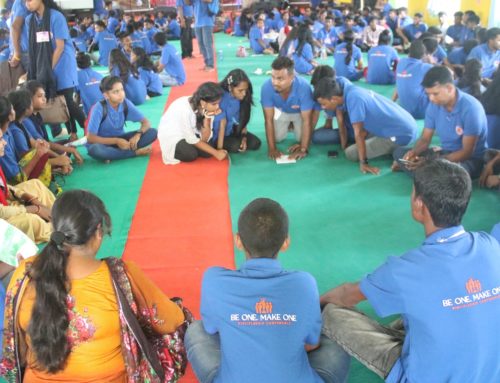
Bangladesh
The three districts of Bangladesh graduated 47 people on 11 December with a Diploma in Pastoral Ministry, some of whom were ordained afterward.
“This time… there seems to be more people with grasp of doctrinal integrity and theological conviction and missional focus,” said SANBC president Rev. Simon Jothi of the graduating class.
The school continues to develop in Bangladesh. In Dhaka, the capital city, there is a full-time education coordinator for the country, Rev. Simon Mondol. The country has set the goal to have 30 graduates each year. And the school is focusing on teacher empowerment and course revision which incorporates the local instructor’s input on contextualized missiological approaches, Jothi explained.
Nepal
On 23 January, Nepal graduated 12 people in a Diploma of Pastoral Ministry, 43 people with a Certificate of Lay Ministry (having completed seven courses out of 25), and 17 people with a Certificate of Lay Pastoral Ministry (completing all 14 courses). The 17 people are expected to eventually earn their Diploma in Pastoral Ministry.
“That shows for the first time for me … there is steady progress in the quality of the church educating those in the district,” Jothi said. “The district superintendent noted our students learned order and discipline through the course of study.”
The students come from towns and villages in the east, central and north parts of Nepal, representing a wide variety of areas in the course of study. The students learn by gathering in a village and a teacher comes to them from Kathmandu or from the east. The students bring their own bedding, as well as rice, meat and vegetables, and throughout the period of the class they share life and cook meals together.
During the evenings after class, they go out and witness in that local community – helping to fulfill some of the 90 hours of practice they are required to do in conjunction with their studies.
Forty percent of Nepal’s graduates are first generation Christians.
Sri Lanka
On 23 February, 20 students graduated with the Certificate of Lay Ministry, and 13 earned their Certificate of Pastoral Ministry. The goal is for 12 people next year to receive the Diploma of Pastoral Ministry and be prepared for ordination. That would more than double the number of ordained people in Sri Lanka, which right now has eight to 10 ordained ministers – all who are graduates from SANBC.
Education centers are increasing in Sri Lanka. The local churches and Nazarene Compassionate Ministries (NCM) serve as partners with SANBC by hosting the courses in their church buildings or child development centers. The district pays for the course material and travel for the students, while the local church members cook for the students and provide other needed services.
India
The India Field saw three graduations in three of its districts, as well. On 12 January, five people in Western Maharashtra District graduated from the course of study – the first five people to graduate from SANBC in that district.
In Bangalore, on the Karnataka District, nine people graduated – half of whom were first generation Christians.
In the Tamil Nadu District, five graduated – including one lay person who simply believed he should learn the theology of the church in order to support the ministry more effectively.

SANBC is working toward being accredited by the Asia Theological Association. Jothi said 95 percent of the work is finished and they are expecting an accreditation team to come as the next stage of the process.
“This is a very good year for SANBC,” said Jothi. “I think SANBC has established a mission to help the districts and churches in the strategy of the church. So that’s why the partnership between the church and the school closely working is a powerful method in India and South Asia Field.”



